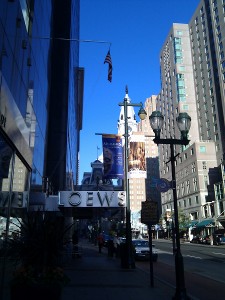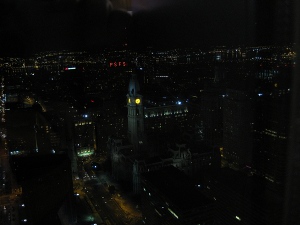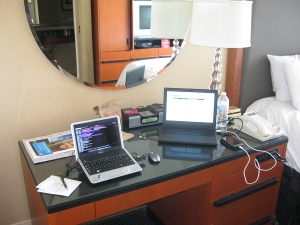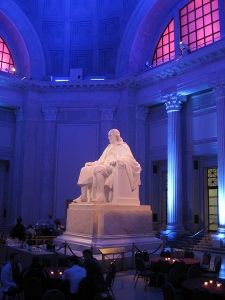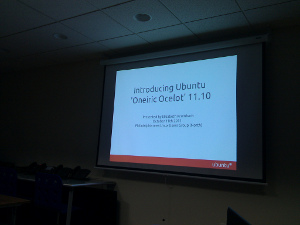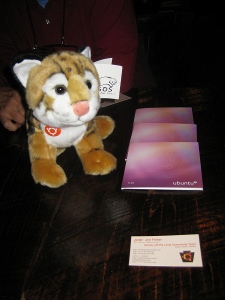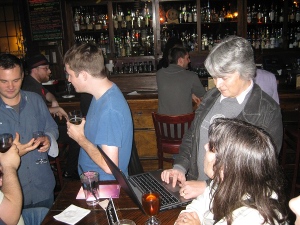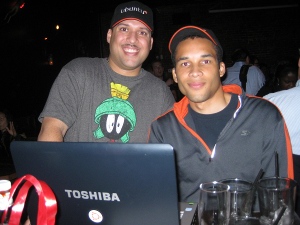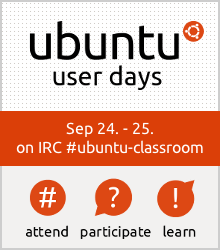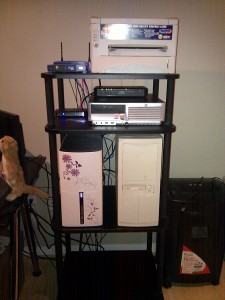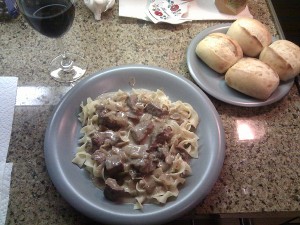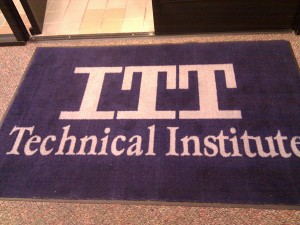I was in Philadelphia for the actual release day of Ubuntu 11.10 so I went to the Pennsylvania team’s release party (congrats again on your reapproval!).
In San Francisco I ended up postponing the regular monthly Ubuntu Hour a week and we held an Ubuntu Hour and then an 11.10 release dinner on Wednesday the 19th. Fortunately that was also the day that we received our CDs so we had CDs for our release party.
I arrived at 6PM and met up with Michelle Mastin who had brought along an ExoPC running Ubuntu 11.10, which Oneiric the Ocelot got to play with:
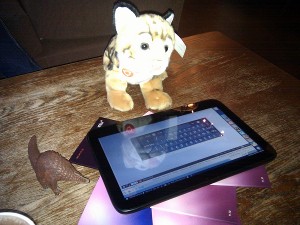
We were soon joined by Laura, who had been invited out by a friend at NoiseBridge, our friendly neighborhood hackerspace. Then Greg Grossmeier showed up, a recent transplant to San Francisco from Michigan. I’ve worked with Greg on several things over the years, including the Americas Ubuntu membership Board so it was a pleasure to finally meet in person.
We wrapped up at the coffee shop and met up with other Noisebridgers on the short walk over to Thirsty Bear Brewing Company for our 11.10 Release Dinner.
Much fun was had and the ocelot made some new friends.
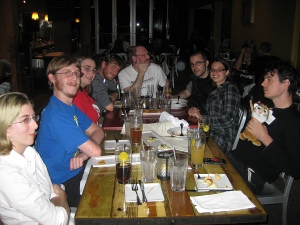
We ended up with a total of 10 people coming out for the dinner and left shortly after 9PM.
Thursday night was the Ubuntu Hour in Mountain View. I took the 6:14 Caltrain down so I arrived shortly after 7 to an already lively group.
By the end of the night we had 12 people enjoying warm drinks and discussions about Ubuntu. When someone asked about new features in 11.10 I did a mini-presentation based on the one I did in Philadelphia last week.
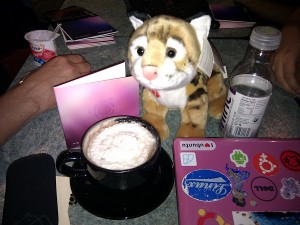
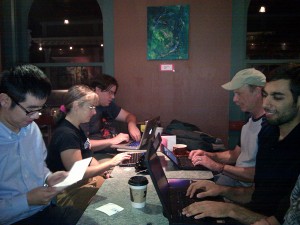
The night turned from great to exceptional with the arrival of Reynaldo and Linda Gil and Belinda Lopez. Reynaldo first contacted me about two weeks ago about what the Ubuntu California team could offer in terms of networking and support for some work with Edubuntu he was starting in San Jose with a focus on the Latino community. I quickly informed him about the in-school efforts of Partimus in San Francisco and we arranged to meet at the Ubuntu Hour. It was great to meet up and the Hour was a really great opportunity to introduce him to several players in the Ubuntu community near San Jose. Belinda has a background in education and happened to in town for the FLOSS Documentation Summit at Google this week so I invited her out to the Hour and to meet with us about educational opportunities. After the Hour, Reynaldo, Linda, Belinda and myself had dinner and a lot of really inspiring conversation at a nearby Italian place, a perfect way to wrap up the evening.
More photos from both events are available here: http://www.flickr.com/photos/pleia2/sets/72157627938849996/
Thanks to everyone who helped make it happen!


